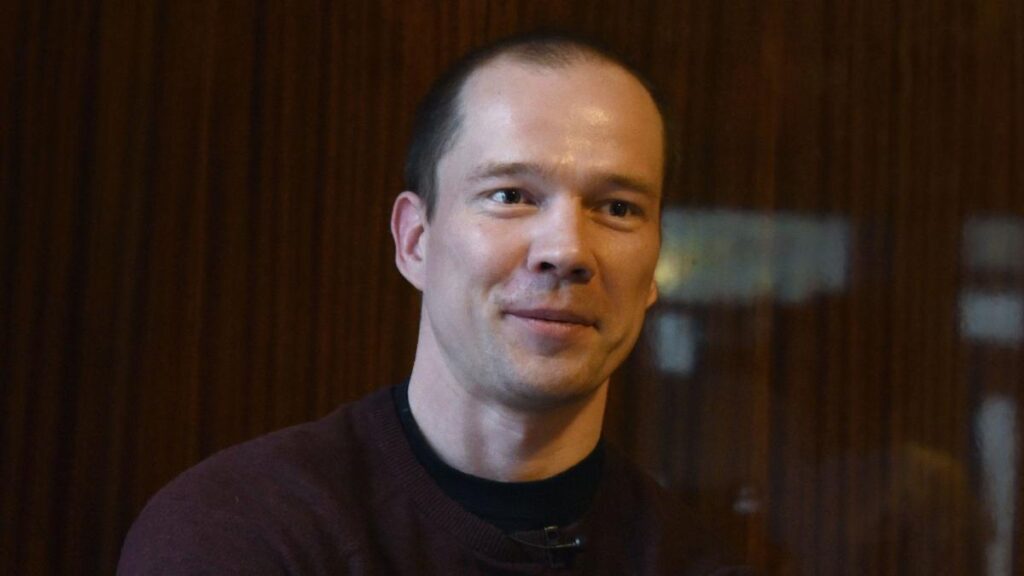Ildar Dadin, a well-known Russian opposition activist who fought alongside Kiev in Ukraine, has been killed, according to the group that recruited him.
A spokeswoman for that group, the Civic Council, told the BBC that Dadin had died, adding that “he was and remains a hero”.
The activist-turned-fighter was killed when soldiers from his volunteer battalion, the Legion of Freedom of Russia, came under Russian artillery fire in the Kharkov region of northeastern Ukraine.
For the time being there are no more details and the Legion itself does not want to comment, saying that a military operation is still active.
But Ilia Ponamarev, an exiled Russian opposition politician with previous ties to the Legion, told the BBC he is “sadly certain” Dadin is dead.
Another source clarified that this had been “confirmed by those who were in battle with him.”
The last messages I sent to his phone are still marked as ‘unread’.
Ildar Dadin became known in Russia ten years ago for his persistence in organizing peaceful protests as political repression there increased.
He was the first person to be prosecuted under a new Article 212.1 – quickly dubbed Dadin’s Law – which in 2014 made it a criminal offense to commit repeated violations of Russia’s increasingly restrictive rules on protest.
In his case, that simply meant standing with a banner on the streets of Moscow.
Sentenced to two and a half years, Dadin was placed in a punishment cell and immediately went on a hunger strike. His prison guards then tortured him to get him to stop.
Shortly after his release in 2017, I met him in Moscow and he described hanging from the wall by his handcuffed wrists. The guards then threatened him with rape. He admitted that the cruelty almost broke him.
So when I heard that Dadin had joined a battalion of Russian volunteers fighting for Ukraine, I reached out again earlier this year and we had a series of long conversations.
“I cannot stand by and do nothing and thus become complicit in Russian evil and its crimes,” Dadin explained his decision to enlist, as principled and intense as I remembered him.
He had always considered himself a pacifist, but now listed his reasons for taking up arms: “The aggression, the mass murders, the torture, rape and plunder.” Yet he chose the nickname Gandhi.
Dadin was deeply convinced that he bore personal responsibility for the large-scale Russian invasion of his neighboring country.
He argued that he and his fellow Russians had failed to stop Vladimir Putin, allowing them to be scared off the streets by police brutality and the threat of prison.
“The most important thing now is to act on my conscience,” Dadin wrote to me one evening from the front line in Sumy.
He initially signed with the Siberian Battalion in June 2023 before moving to the Legion of Freedom of Russia – both officially part of the Ukrainian Armed Forces – last winter.
The recruits are mainly Russian citizens who hope that helping Ukraine defeat Vladimir Putin will be a first step toward ending his rule in the Kremlin.
Their numbers are not clear, nor their effectiveness as a fighting force.
They have had some successes, including a cross-border raid into Russia earlier this year, at the time of Putin’s re-election.
But for Dadin, the experience wasn’t quite what he’d hoped.
He believed that some of the missions his unit was sent on were “pointless” in a military sense.
He described a battle in which he was trapped by Russian fire in a bomb crater for eight hours as a drone tried to drop a grenade on him, while a fellow volunteer soldier bled to death.
And like many Ukrainian soldiers, he was exhausted, fighting with hardly any days off and limping from a wound to his hip.
I wondered if he might leave, but Dadin was sure that his conscience would not allow him to sit “on the sidelines.”
Not while Ukrainians were being murdered, as he put it, “by Russian criminals.”
“I tried to stop Russia, but did I? No,” he berated himself in one of our last conversations. “And thousands of people were killed because I didn’t do enough.”
Those who sent him to fight disagree. “Ildar was strong, courageous, principled and honest,” the Civil Council wrote. “That’s how we should remember him.”







